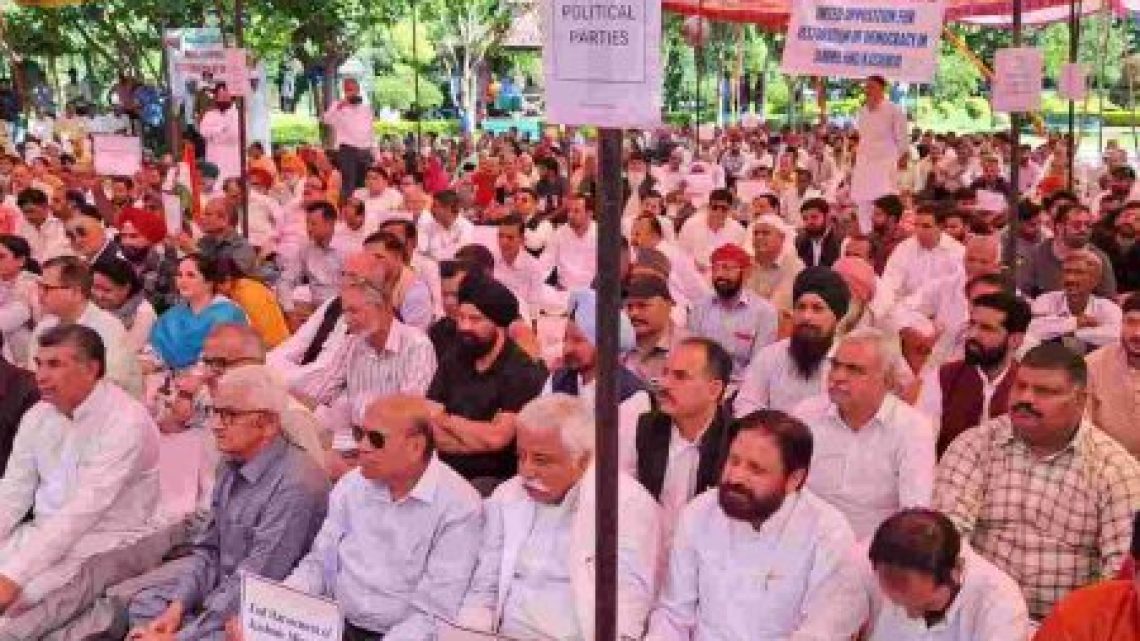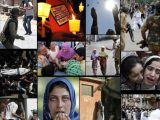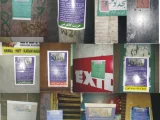
Political Parties Protest to Safeguard Their Political Rights in IIOJ&K
December 19, 2023In a significant display of unity, leaders and activists from approximately 20 political parties recently staged a protest demonstration in Jammu, underscoring their collective demand for the protection of the status, rights, culture, and heritage of Indian illegally occupied Jammu and Kashmir. The focal point of their grievances was the perceived encroachment by the Bharatiya Janata Party (BJP)-led Hindutva government in India.
The demonstration followed a pre-march meeting where representatives from diverse political, social, and intellectual backgrounds convened in Jammu to voice their support for the shared demands. These demands included the restoration of full statehood, preservation of status under Article 371, safeguarding Dogra culture and heritage, and the elimination of toll plazas throughout the territory.
The meeting also addressed additional concerns, such as regarding the official status of the Punjabi language and advocating for the regularization of temporary employees and daily wage earners. Notably, all present leaders unanimously agreed to champion these causes and advance their collective voice in solidarity.
Prominent figures at the gathering included Gulchan Singh Charak, President of Dogra Sadar Sabha, Vajant Pathania from Dogra Swabhiman Sabha, HR Sharma, ID Khajuria from IDP, Professor Hari Om, Pritam Singh representing the Aam Aadmi Party, and the esteemed social activist Anna Durnai.
During the meeting, leaders such as Riya Kaluria, Sukhdev Singh, Sahid Salim, Tajinder Singh, Sunny Kant, and Joginder Singh shared their perspectives on the pressing issues at hand. Their discussions underscored the multifaceted nature of the challenges facing the region, ranging from political status to linguistic identity and economic stability.
The subsequent protest march saw leaders and representatives from all participating parties taking to the streets, brandishing posters that encapsulated their demands. The participants emphasized the imperative for continued dialogue through such gatherings, proposing a well-thought-out roadmap for future actions.
This demonstration serves as a testament to the collective determination of diverse political entities to safeguard the identity and rights of the people in Indian-administered Jammu and Kashmir. The protest not only highlighted the immediate concerns related to political autonomy and cultural preservation but also shed light on the broader socio-economic issues affecting the region. As these leaders unite to champion their cause, it remains to be seen how their concerted efforts will influence the ongoing discourse surrounding the contested territory.

